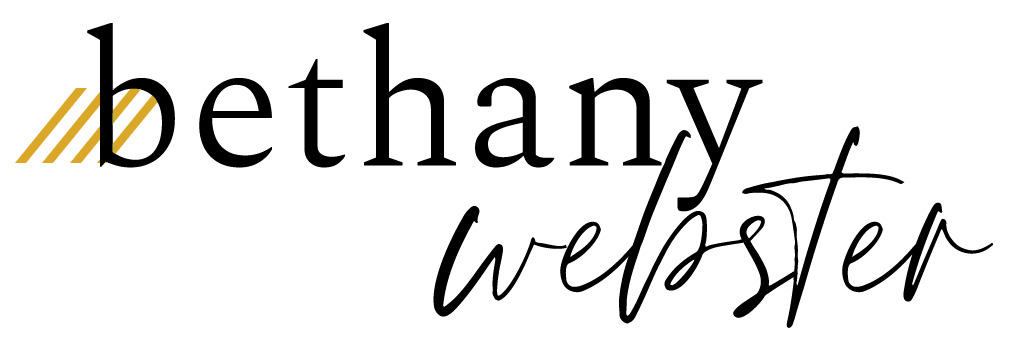Crossing the “Terror Barrier” of the Mother Wound: From Subservience to Sovereignty (Part 1 of 2)

Have you ever experienced a strange sense of foreboding, hesitation or even terror in moments when you’re about to take an action that should feel empowering and positive in your life? For example, a public moment like receiving an award or a private moment like standing up for yourself by setting a healthy boundary?
If so, it’s possible that you’ve encountered what I call the “Terror Barrier” of the Mother Wound.
The Terror Barrier is the psychological and somatically-charged internal threshold that we run up against, sooner or later, as we heal the Mother Wound. Over the past 10 years of coaching women on healing the Mother Wound I have become intimate with the process of identifying the Terror Barrier and moving through it.
In this blog article, Part 1 of 2 on this topic, I will explore what the Terror Barrier is, why it exists, where it comes from, how to know if you’re encountering it and how to support yourself in crossing this barrier, from subservience into sovereignty. (For reference, here’s a link to the article for Part 2.)
What exactly is the Terror Barrier of the Mother Wound?
Through the years I’ve heard countless women express it this way:
“I have this irrational and overwhelming fear that if I allow myself to be truly fulfilled and happy in my life, that it would cause my mother to physically die.”
The Terror Barrier arises when healthy, empowering, self-advocating choices in any given moment are felt to be in direct conflict with what your mother strongly reinforced as bad, wrong, shameful, or somehow threatening to her.
In other words, you’re about to do something that would enhance your life in positive ways but that would, at the same time, according to early childhood conditioning, stimulate your mother to admonish, punish, abandon you, or worse, see you as an enemy or threat.
The seemingly irrational fear is a symptom of the Terror Barrier and has its roots in repeated lived experiences from the past that caused us to conflate our own healthy needs or individuality with the terrifying pain of potential exile from mother.
If your mother was to some degree, wounded, dysfunctional or toxic to you while growing up, normal things that may have caused your mother to reject, punish, reject or mock you could have included things like: Speaking up for yourself, being carefree and confident, resting, relaxing or daydreaming, asking for what you want, self-advocating in a discussion, making a mess of some kind, saying No to her or another adult, crying when she told you to be quiet, needing physical or emotional help, just to name a few.
A child will naturally choose to maintain the attachment bond with mother over authenticity, because attachment is survival to a child. But as grown adult women, our need for authenticity becomes increasingly paramount, especially after possibly decades of some degree of self-sacrifice, silencing ourselves and feeling subservient to others.
Cognitively, as an adult, you may know that on the other side of any given empowered action step is more joy, authenticity, integrity and inner peace, but at the same time, there’s intense inner dissonance because on a somatic level your body is telling you this action represents something dangerous according to the early conditioning of your childhood, when your nervous system and brain circuitry was being formed in an environment that discouraged your individuality and free expression, to some degree.
You may not even know why you feel terrified, as it may be calling up preverbal terror. And the terror can fall on a wide spectrum from being very fleeting or mild to very intense and even physically debilitating.
Codependent mothers often put their daughters in an impossible situation:
“Betray me as your mother if you surpass me OR betray yourself if you stay small for me as your mother.”
The subtext is “I have to choose between my mother’s love OR my having my own self.”
Examples of situations that can stimulate the Terror Barrier:
- Getting ready to publish a book when your mother always said you were stupid or boring
- Marrying “up” when your mother married “down” in social standing
- Having a growing savings account when your mother lived paycheck to paycheck
- Being known as a leader in your community when your mom was known as the town drunk
- Fulfilling a lifelong dream that your mother also had: traveling the world, getting a higher degree, being a successful in a certain endeavor, being visible with your creative work, etc.
- Having a loving and stable marriage when your mother had a long series of domestically abusive relationships
As you approach greater and greater contrast between your life and your mother’s life, it can feel like every cell of your body is saying “Go back! Don’t do this! You won’t survive her rejection if you dare to advocate for yourself or feel worthy enough to receive this. You’ll LOSE her as your mother, as a result, and that doesn’t feel survivable. Connection to Mom and approval from her is the only way to survive.”
The Terror Barrier can cause EMOTIONAL reactions including: fear, panic, helplessness, urgency, desperation, impulsiveness, powerlessness, intense shame.
The Terror Barrier can cause intense SOMATIC reactions including: rapid heartbeat, difficulty breathing, skin hives, and other physical symptoms like nausea, diarrhea or intense fatigue.
The Terror Barrier is especially acute in women whose mothers enforced intense codependency and enmeshment. It is usually emotionally immature mothers with unrecognized childhood trauma who unconsciously seek emotional relief from their daughters.
Daughters who grew up with enmeshed mothers develop strong beliefs including:
- “My job is to make mom feel good by agreeing with her, not making waves, avoiding conflict or staying invisible. This is how I express my love and loyalty to her.”
- “My needs and feelings are a problem; I need to avoid them entirely and never express them, less I lose the fragile sense of safety I have with her.”
- “I’m not good enough. I need to work hard and earn mom’s love and positive attention. I need to work hard for her to see me. One day I’ll be enough for mom and we’ll finally have the close relationship that I long for” (the impossible dream).
- “Mom needs me more than I need myself.” (Seeing yourself as an enemy and mom as self. This prevents us from truly growing up.)
As children, their daughters may have been positively rewarded for being mom’s emotional support, soothing mom’s fears, calming down her anger, helping her in practical crises or simply leaving her alone.
Thus, the daughter’s identity is shaped into a core belief that subservience, silence and self-sacrifice is tightly linked with survival, approval, security and “love.”
This is so normal and unremarkable to the daughter, like breathing. The daughter may have created an unconscious narrative that “Mommy needs me” which gives her an illusory sense of power or control or an ethic of “being a good person” even though it’s actually a harmful, exploitative dynamic. This is not unlike Stockholm Syndrome in which victims feel an imbalanced level of empathy for their abusers, while being unable to see the abuse they are experiencing which prevents them from self-advocating and escaping from the abusive situation.
This can also happen in families in which there was deep emotional neglect and a home environment pervaded by fear. The subtext in that situation is “I’m a good girl when I’m invisible and disappear.” This is why visibility, complements and positive attention can be very difficult for many women in their relationships and careers.
What can make this confusing is that there may have been times in which your mother was genuinely kind, generous or comforting to you, making it difficult to process the severity of the harm that you may have absorbed through the codependency or neglect. Coming to terms with how severe your situation was is difficult. But when you’re ready to see it, it’s like having the key to your own prison cell. You can liberate yourself!
Toxic things that wounded mothers often say to enforce enmeshment and codependent behavior from their daughters:
- “No one will ever love you.”
- “You must be really stupid to believe (or do) that!”
- “You need me to take you down to size. Don’t start getting too big for your britches!”
- “I am the only one who understands you. Everyone else lets you down.”
- “You can’t do anything right! You don’t see things clearly. You’re not very smart.”
- “You’re the only one who understands ME. I’m so glad you’re always here for me.”
- “You make so many mistakes! You need me to help you. I’ll always be here for you.”
- “You can’t pick good friends or partners. Thank goodness you’ll always have me.”
- “Dream on! You’ll never have what you want. Be realistic and don’t expect much.”
- “What makes you think you could do that?! Do you think you’re better than me?!!”
- “Who do you think you are?! You think you’re so superior!”
- “I’m the ONLY one who knows the REAL you. Stop being delusional.”
- “You know all the struggles I’ve had. You’re just adding to my pain.” (In response to daughter’s legitimate feelings or boundaries.)
- “….after all that I’ve done for you!!” (transactional, manipulative)
Unfortunately, wounded mothers can display outwardly kind, altruistic, professional behaviors in the public sphere, but behave in regressive and aggressive ways with their children and adult daughters. It may be difficult for some people to believe that mothers could be so overtly or implicitly cruel to their daughters. But the sad truth is that this is more common than the general population realizes. This is not to blame mothers but to stimulate truth and healing for all women, mothers and daughters alike. We can’t heal from what we ignore or refuse to acknowledge. Healing the Mother Wound takes enormous courage and getting support is key.
Wounded mothers give their daughters the message that their individuality and separateness is a form of attack or betrayal of the mother. These mothers long to merge with their daughters and unconsciously find power in their daughter’s subservience to them. They may find some dark pleasure in keeping their daughters always slightly off-balance or in perpetual self-doubt, which may be something their own mothers did to them.
This is not unlike a bully who feels relief from her own insecurities by punching down onto someone below her on the hierarchy.
Enmeshment with mother sets the daughter up for an adulthood of unconsciously attracting “under-functioning” friends, partners who she can “over-function” for, putting herself last, and sacrificing herself for as she did for her mother/family of origin. This feels comfortable, safe, normal, familiar and she’ll avoid healthier relationships that have healthy boundaries, spaciousness and autonomy as they feel unfamiliar and uncomfortable. That is until she takes steps to heal from this and get support.
This puts daughters in an awful bind, because what feels familiar and comfortable due to childhood conditioning, is accepting treatment that is inherently dysfunctional, painful and destructive. The very texture and flavor of “attachment” includes pain, longing and self-recrimination. This painful cycle will keep repeating itself until the daughter sees it in herself and takes steps to disrupts it.
As we heal, grow and evolve on the path of healing and self-development, we start to see through this.
There comes a time when we must pass the terror barrier, we must cross over into a new default from subservience to sovereignty.
Sovereignty is about stepping out of codependency and enmeshment with our mothers and into healthy Emotional Differentiation, which is a healthy part of human development in teenage years and young adulthood. But that developmental step is something that wounded mothers actively discourage due to their own wounds and unexamined dysfunction.
This is the end of Part 1. Now it’s time to read the article for Part 2 in which I cover:
- Why wounded mothers discourage emotional differentiation in their daughters
- Both subtle and severe expressions of the Terror Barrier that can show up
- My own personal experiences of the Terror Barrier on my own journey
- 7 Main Ways that we can support ourselves in crossing the Terror Barrier
- New expressions of sovereignty that we begin to embody as the Terror Barrier increasingly dissolves
- and much more!
Would you like support crossing the Terror Barrier and moving from Subservience to Sovereignty?
I’m here to help!
Join my comprehensive online course Healing the Mother Wound by October 25th and get the following bonuses for Free!
- My potent mini-course “From Subservient to Sovereign”
- Two Live Group Q&A calls with me in November, which are 90 minutes each in length and recorded.
If you’ve been wanting to deepen your healing journey, now is a great time. These free bonuses go away on Friday, October 25th, 2024.




